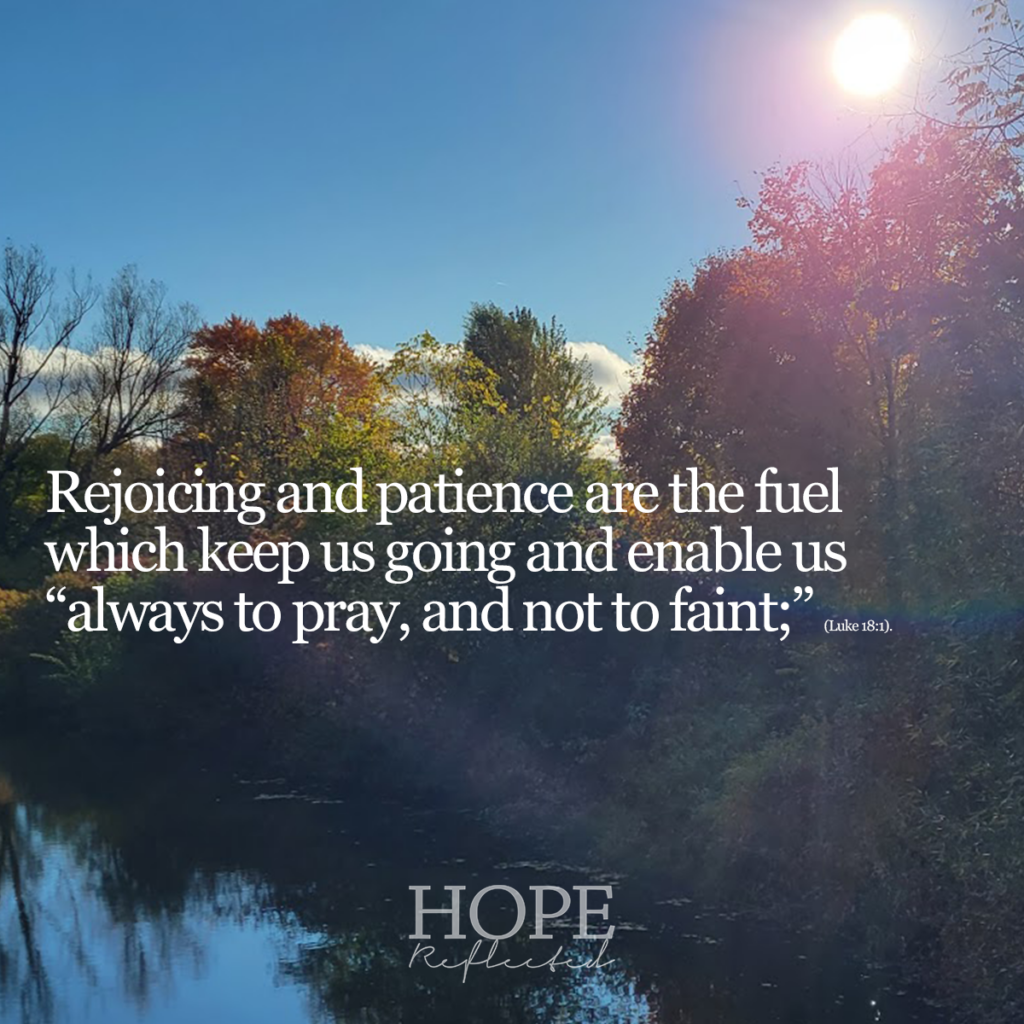Persistence in prayer
Written by H, Posted in Christian Living, Published Work

Difference between vain repetition and being instant in prayer
It is important to clarify that Jesus’s instruction to “use not vain repetitions” (Matthew 6:7) does not mean that we should be careful how often we pray or how often we pray about specific subjects.
In Luke 18:1, Jesus Himself instructed us that “men ought always to pray, and not to faint;”. Similarly, Paul instructed the church at Rome to continue “instant in prayer;” (Romans 12:12) and the Christians at Thessalonica to “pray without ceasing” (1 Thessalonians 5:17).
Persistence and perseverance in prayer should be marked characteristics of the Christian’s life.
In Benson’s Commentary, the Reverend Joseph Benson suggested that we do wrong when we cease from prayer. “It frequently happens, that after men have prayed for any particular blessing, they desist, because God does not immediately grant them their petition. To show the evil of this, and to recommend importunity and perseverance in prayer… the present parable is introduced.”
Drawing parallels about prayer from the parable of the widow and the judge
The parable to which he refers is that in Luke 18:1-8, where after Jesus said “that men ought always to pray, and not to faint;” (Luke 18:1), He shared the parable of the widow and the judge.
In the parable, the widow presses the judge until he gives her justice. As the judge listened to the widow in her persistency, so God responds to us when we are persistent in prayer. This is why Jesus said “that men ought always to pray, and not to faint;”.
It pleases God when we exercise persistence in prayer
It pleases God when we exercise persistence in prayer. While God’s response may not always be what we want it to be, or in the timing that we think is right, we can be assured that He does answer prayer.
In his letter to the Romans, Paul instructed the Christians at Rome that they should be “Rejoicing in hope; patient in tribulation; continuing instant in prayer;” (Romans 12:12). This is an interesting verse because it suggests before “continuing instant in prayer” that we first rejoice, and second be patient, almost as though these are precursors to persistence in prayer.
Fuel to pray
In MacLaren’s Expositions of Scripture, Alexander MacLaren drew a parallel between Romans 12:12 and 1 Thessalonians 5:16-18 where Paul instructed the Christians at Thessalonica to “Rejoice evermore. Pray without ceasing. In every thing give thanks: for this is the will of God in Christ Jesus concerning you.” Without holding these other attitudes, we cannot be persistent in prayer.
Rejoicing and patience are the fuel which keep us going and enable us “always to pray, and not to faint;” (Luke 18:1).
“Rejoicing and patience are the fuel which keep us going and enable us
Hope Reflected
‘always to pray, and not to faint;’ (Luke 18:1).”
More than appeals
As Jesus said that we are not to use vain repetitions, our prayers should not be merely appeals to God, our prayers should be an attitude wherein we are referencing God in every thing we do.
C.S. Lewis wrote that “I pray because I can’t help myself. I pray because I’m helpless. I pray because the need flows out of me all the time – waking and sleeping. It does not change God – it changes me.”
Vain repetitions are many words with no meaning; persistence in prayer has power because it requires us to have great faith.


![False friends or counterfeit kindness; whatever you want to call it, the world is filled with people who will say one thing to your face and then another behind your back; people who will woo you in order to get something from you.
It’s sad, but it’s true.
The Bible provides us with examples from Joab to Judas, and yet, we’re surprised when we find ourselves deceived and hurt by someone else.
So what are some of the hallmarks of a true friend?
You can read more about this on hopereflected.com [Link in profile]
.
.
.
#friends #friendship #kindness #counterfeitkindness #hurt #proverbs #truefriends #hopereflected #blog #blogpost](https://www.hopereflected.com/wp-content/plugins/instagram-feed/img/placeholder.png)